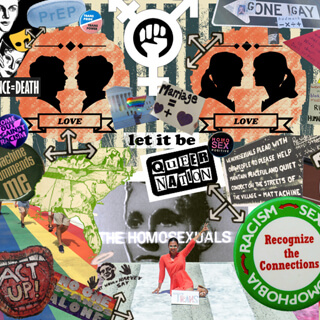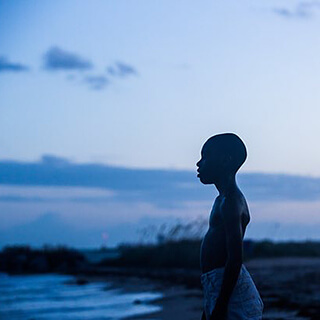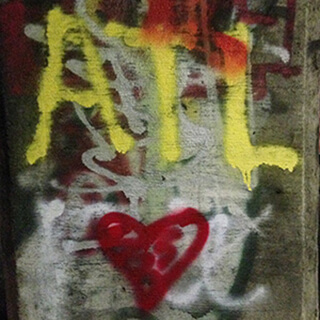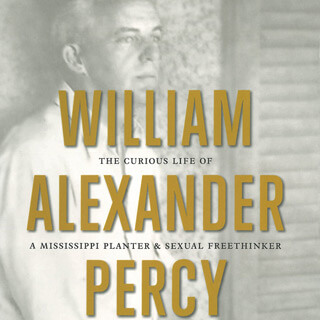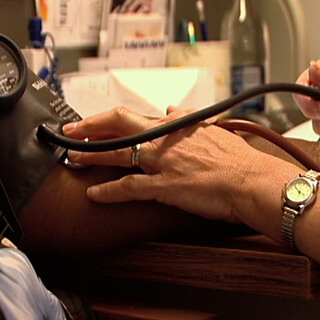Overview
In light of the US Supreme Court's decision in Masterpiece Cakeshop, Ltd. v. Colorado Civil Rights Commission, native Mississippian and "Queer Intersections / Southern Spaces" series editor Eric Solomon considers its implications for Mississippi's HB 1523 and Zawadski v. Brewer Funeral Services.
Blog Post
I can remember the first time I understood death. Growing up in the Mississippi Delta, early in the mornings, my mother would visit one of her home care patients, an elderly man ("Mr. S") who lived alone around the corner from us. My mother runs a home health and hospice department with the local hospital, and for as long as I can recall, she has woven in and out of the lives of others, helping them heal in the comfort of their homes or easing their suffering as they died. Down in the Delta, the alluvial floodplain between the Mississippi and Yazoo Rivers in northwest Mississippi, perennially listed as the poorest and most unhealthy region in the country, the need for healthcare providers like my mother remains unbounded. Chronic sickness and death saturate the landscape.

Home, July 2018. Collage by Eric Solomon. Creative Commons license CC BY 4.0. This collage features a detail from the painting "Blue Suit, Faceless Man" by Sandy Solomon. Additional image credits available here.
My mother would leave each morning to visit Mr. S. Usually she would wake my two siblings and me at 6:45, leave around 7:00 with makeup done but hot curlers still in her hair, return around 7:45, remove the curlers, mist her hair with her "Big Sexy Hair" spray, and drive us five minutes to school before heading to the office and further patients to visit and administrative duties to complete. While she was gone, we kids would take turns showering in our house's one shower, make our sack lunches (usually peanut butter and jelly sandwiches and some version of potato chips), and be ready to leave when she got back home. On this particular morning, my mother did not come back home at 7:45. As an eleven-year-old, I first thought, "We're going to be late for school."
Only when my mother called home around 8:00 and told us we better walk that day did I understand that something had happened at Mr. S's house. I grabbed my little brother's hand as my older sister grabbed mine and we headed out.
When my mother got home that evening, I knew she had been crying. Mr. S was a special patient, one she had seen every morning for several years. That morning he had died. Slowly, the narrative unfolded: she had not been able to get him to come to his front door; she could see through the window into his living room where he lay on the floor; my mother broke a window and called the police once she entered the house; Mr. S had been dead for a while by the time she arrived. My mother called the coroner, filed the reports, notified the family; she did what end-of-life caretakers do. Absent from this narrative of events was the bond my mother had formed with this man of no relation who had shared his home with her each morning as she cared for him, who had given her youngest son a baby doll as a gift, who had shared with her in his old age the wisdom only time can teach. The ethic of care and mutual respect between them was a kind of love that had been ripped from my mother that morning, as quickly as it typically took her to remove the pins from her curlers before shuffling us off to school.
I first understood then that this is what death felt like: a sudden realization of the loss of love. Later, I would understand that no matter the type of love, no matter how each individual identified or how each relationship was defined, loss was always loss, though the grief that followed could take many forms. Loss and grief irrevocably altered the makeup of one's days. Furthermore, they affected everyone. My mother never returned to Mr. S's house, and the composition of our early mornings entered a new phase.

Sometimes I think we Mississippians have a special relationship with death because the ghosts of history haunt us, inform every decision we make, good or bad, and necessarily bring shame upon us again when we inevitably fail to do the right thing. Sometimes I think that on the national stage, Mississippi was, is, and perhaps always will be a failing, floundering actor. However, as one of its LGBTQ sons, I too have seen my state's goodness, personified most concretely in the pillar of my mother's selfless actions over the years—a woman who was born, raised, and perhaps will die in Mississippi—and in thinking about her from time to time in light of all that Mississippi has done and continues to do wrong, I have faith we can do better by all our citizens. There are things we can do right, changes Mississippians can make, changes which would make me more comfortable going home to see my mother without fear of being denied any form of service each of my straight siblings enjoys freely and takes for granted.
In January 2018, the US Supreme Court decided not to hear arguments against Mississippi's draconian 2016 Religious Liberty Accommodations Act, HB 1523, which allows businesses and providers to refuse service to LGBTQ individuals should such service violate "sincerely held religious beliefs." In refusing to hear the cases of Barber v. Bryant and Campaign for Southern Equality v. Bryant, the Court allowed the law to go into effect (legally in force) and ensured that Jim Crow by another name again be the law of a state that, to paraphrase Nina Simone, everyone already knows about anyways.

On June 4, 2018, when the Court decided in favor of Colorado bakery Masterpiece Cakeshop, it set a dangerous precedent: LGBTQ discrimination and bigotry can be legislated and upheld, allowing laws like Mississippi's HB 1523 to remain on the books. At least for now. Given the shifted balance of the Supreme Court, it is my hope that in time my Mississippi will overturn HB 1523 on its own. The state's history offers little to support such hope.
The language of HB 1523 is clear, identifying three specific "religious beliefs or moral convictions" that merit special protection and codification by law:
- Marriage is or should be recognized as the union of one man and one woman;
- Sexual relations are properly reserved to such a marriage; and
- Male (man) or female (woman) refer to an individual's immutable biological sex as objectively determined by anatomy and genetics at time of birth.
Setting aside my own objections to such "beliefs," the language of the act violates federal law and enshrines into Mississippi law discriminatory practices with far reaching everyday implications. For example, medical and funeral providers have the legal right to deny care and service to LGBTQ individuals even as such a denial violates the Hippocratic Oath and similar ethical codes of conduct—likely resulting in civil litigation. In Mississippi, second-class citizenship remains under the aegis of special "religious liberty" measures for a bigoted few.
HB 1523 is an attack on LGBTQ individuals, and despite numerous legal challenges and actions by states and cities banning official publicly funded travel to Mississippi, the law remains in effect.1The states banning publicly funded travel to Mississippi include California, Connecticut, Minnesota, New York, Vermont, and Washington. Additionally, both Washington, DC, and select counties in Wisconsin, Ohio, Maryland, and Oregon issued travel bans. Cities including Baltimore, MD; Berkeley, CA; Cincinnati, OH; Dayton, OH; Honolulu, HI; Long Beach, CA; Los Angeles, CA; Miami Beach, FL; New York City, NY; Oakland, CA; Philadelphia, PA; Portland, ME; Providence, RI; Salt Lake City, UT; San Francisco, CA; San Jose, CA; Santa Fe, NM; Seattle, WA; Tampa, FL; West Palm Beach, FL; and Wilton Manors, FL, have issued bans. Finally, the British Foreign and Commonwealth Office and the European Union also issued warnings to travelers to both Mississippi and North Carolina (in the wake of North Carolina's similarly draconian Public Facilities Privacy & Security Act).


One ongoing test of HB 1523 continues to receive attention: Zawadski v. Brewer Funeral Services. In May 2017, Jack Zawadski (of Picayune, MS) sued Picayune Funeral Home for damages relating to breach of contract, negligent misrepresentation, and the intentional and negligent infliction of emotional distress. The lawsuit narrative is as follows: in May 2016, Jack lost his beloved partner of fifty-two years, Robert "Bob" Huskey. The couple met in California in 1965, chose to retire in 1997 in Mississippi, and when the Supreme Court ruled on marriage equality in 2015, married. By 2016, knowing that Huskey was dying from a heart condition, husband Zawadski and nephew John Gaspari organized funeral preparations. They selected Picayune Funeral Home largely because it was the only suitable cremation service within a ninety-mile radius of where the couple lived. Under the contract, the funeral home agreed to transport Huskey's body from the nursing home for cremation. The couple made plans for the transition from fifty-plus years of love and companionship. Upon Huskey's death, allegedly upon learning that Huskey's next-of-kin and husband was Zawadski, the funeral home reneged on its contractual obligations.
Unable to sue the funeral home for discrimination (Mississippi law does not protect LGBTQ subjects), and as HB 1523 actually now makes it easier to be discriminated against, Zawadski instead sued for breach of contract. HB 1523 will favorably factor into the funeral home's defense.
The Zawadski litigation is listed under the category "Other Lambda Legal Case-Related Materials" in a brief both the Lambda Legal Defense and Education Fund and Family Equality Council presented to the US Supreme Court in the Masterpiece Cakeshop case. In it, the attorneys write:
Across America, LGBT people are subjected to pervasive discrimination. This discrimination often blindsides its targets, hitting without warning during the myriad transactions that make up daily life. As a result, many LGBT people live defensively, always on guard against the next humiliating, ostracizing incident. From casual shaming to harassment to outright refusals of service, the treatment visited upon this minority effectively subordinates to others' biases their freedom to live with equal dignity.
It's difficult to argue with this sketch of LGBTQ life, but in light of the Zawadski case in my home state, I cannot help but ponder "to live with equal dignity." What is at stake in overturning "religious freedom" laws is more than the "freedom" of LGBTQ individuals "to live with equal dignity," although few would deny the necessity of that fight. The right of LGBTQ individuals to die with equal dignity and receive equal medical access, treatment, and service in that process has also long motivated the activist movement especially during and since the height of the AIDS crisis. Zawadski v. Brewer Funeral Services brings to the fore the legal impulse and ethical imperative to protect our loved ones as they die, and to continue to do right by them after they have died even as we mourn their loss. A Mississippi law that protects a funeral home's decision not only to deny a gay man mortuary service for his late husband but also to renege on the contract already established once they learned of the couple's intimate status is shameful, unethical, and arguably unconstitutional.

I cannot imagine the humiliation Zawadski felt upon hearing this refusal and disavowal. While Brewer Funeral Services deny that they reversed the Zawadski contract for reasons of "sexual orientation," to my knowledge, they have not provided any other justification for their actions. The questions remain: how far can "religious freedom" be stretched, in Colorado, in Mississippi, and beyond? At what point does a person's legal protection to believe what he or she believes in the name of faith or religion become a legal sanction of bigotry?
When I think about Jack and Bob, about Bob's death and the humiliation Jack suffered in attempting to cremate his dead lover, I think about Mr. S. and what would have become of him had my mother not shown up that morning, had she decided not to continue caring for him for whatever reason, "religious," "moral," or otherwise. It was my mother's job, but more than that, it was her goodness that motivated her to care for a man she would grow to love and later mourn following his death for which she served as first responder.
It is with my first memory of death and with my reflections on Zawadski that I have come to understand how HB 1523 fails all Mississippians. I have always been proud to be from Mississippi, to have learned the lessons I learned growing up there, ones I sometimes wonder if I would have learned growing up elsewhere. But I also know that Mississippi, to invoke poet Natasha Trethewey, is a state that again makes "a crime of me" and others like me in its repudiation of our full equality before the law. "Religious liberty" laws are not really about religious liberty.
Regardless of what the judicial system decides in Zawadski and regardless of the fate of Mississippi's HB 1523, sixty percent of Americans believe religious-based denials of service are wrong. Case closed. In the lead up to the Masterpiece Cakeshop decision, the ACLU passed out canvassing signs that read, "It's not about the Cake." Similarly, the Zawadski case is not about the cremation. These are matters of love and death by which all citizens have the right to be equally protected.

In his 1967 pulp novel, A Lover Mourned, gay Mississippian Carl Corley writes, "It has been said that lovers can see forward as well as backward, can see into the past and into the future, wherever their lover is concerned."2Carl Corley, A Lover Mourned (San Diego, CA: Publishers Export Co., 1967), 117. In January 2018, the same month the Supreme Court chose not to hear arguments against Mississippi's HB 1523, Jack Zawadski passed away, reuniting with husband Bob Huskey, the man he first met in 1965. Zawadski did not live to know the result of his case against the humiliating treatment he received following his lover's death less than one-year prior. Yet, in his brief period of mourning, Zawadski never stopped fighting for the dignity and freedom the couple deserved. What was denied in life, we should grant in death. Lambda Legal continues the fight on behalf of Zawadski.
While it may be true that everyone knows about Mississippi and that we Mississippians live daily with our ghosts, it is also true that in our daily living and haunting, we should do right by our dead. All of them. 
About the Author
Eric Solomon earned his doctorate in English from Emory University and is a visiting assistant professor at Oxford College, Emory University. He is currently revising his first manuscript.
Cover Image Attribution:
Unknown artist. Mural—Delta Dancing, Leland, Mississippi, April 26, 2007. Photograph by Flickr user Jimmy Smith. Creative Commons license CC BY-NC-ND 2.0.Recommended Resources
Text
Cobb, James C. The Most Southern Place on Earth: The Mississippi Delta and the Roots of Regional Identity. New York: Oxford University Press, 1992.
Dews, Carlos L., and Carolyn Leste Law, eds. Out in the South. Philadelphia, PA: Temple University Press, 2001.
Gray, Mary L., Colin R. Johnson, and Brian J. Gilley, eds. Queering the Countryside: New Frontiers in Rural Queer Studies. New York: New York University Press, 2016.
Herring, Scott. Another Country: Queer Anti-Urbanism. New York: New York University Press, 2010.
Howard, John. Men Like That: A Southern Queer History. Chicago: University of Chicago Press, 1999.
Howard, John, ed. Carryin' On in the Lesbian and Gay South. New York: New York University Press, 1997.
Morris, Sheila R., ed. Southern Perspectives on the Queer Movement: Committed to Home. Columbia: University of South Carolina Press, 2018.
Ward, Jesmyn. Men We Reaped: A Memoir. New York: Bloomsbury, 2013.
Wise, Benjamin E. William Alexander Percy: The Curious Life of a Mississippi Planter and Sexual Freethinker. Chapel Hill: University of North Carolina Press, 2012.
Web
House, Silas. "The Masterpiece Decision Isn't Harmless." New York Times. June 5, 2018. https://www.nytimes.com/2018/06/05/opinion/masterpiece-cakeshop-decision-kentucky.html.
Laymon, Kiese. "How to Slowly Kill Yourself in America: A Remembrance." Gawker. July 28, 2012. http://gawker.com/5927452/how-
LGBT Life in the South: Southern Stories. GLAAD. Accessed July 13, 2018. https://www.glaad.org/
LGBT People in Mississippi: Fact Sheet. The Williams Institute. March 2016. Accessed July 5, 2018. https://williamsinstitute.law.
Southern Equality Fund. Accessed July 12, 1018. https://lgbtinthesouth.org/about.
Street, Mikelle. "'New Deep South' Explores LGBTQ Life in Mississippi." NBC News. May 4, 2017. https://www.nbcnews.com/
Trethewey, Natasha. "South." Poetry Foundation. https://www.poetryfoundation.
Ward, Jesmyn. "Racism is 'Built into the Bones' of Mississippi." The Atlantic. March 1, 2018. https://www.theatlantic.com/
Watkins, Josh. "We are all the Same: Mississippi Artist Uses Paint to Unite Queerness and Faith." Spectrum South: The Voice of the Queer South. October 20, 2017. https://www.spectrumsouth.com/
Zawadski v. Brewer Funeral Services. Lambda Legal. Accessed August 8, 2018. https://www.lambdalegal.org/in-court/cases/ms_zawadski-v-brewer-funeral-services.
Similar Publications
| 1. | The states banning publicly funded travel to Mississippi include California, Connecticut, Minnesota, New York, Vermont, and Washington. Additionally, both Washington, DC, and select counties in Wisconsin, Ohio, Maryland, and Oregon issued travel bans. Cities including Baltimore, MD; Berkeley, CA; Cincinnati, OH; Dayton, OH; Honolulu, HI; Long Beach, CA; Los Angeles, CA; Miami Beach, FL; New York City, NY; Oakland, CA; Philadelphia, PA; Portland, ME; Providence, RI; Salt Lake City, UT; San Francisco, CA; San Jose, CA; Santa Fe, NM; Seattle, WA; Tampa, FL; West Palm Beach, FL; and Wilton Manors, FL, have issued bans. Finally, the British Foreign and Commonwealth Office and the European Union also issued warnings to travelers to both Mississippi and North Carolina (in the wake of North Carolina's similarly draconian Public Facilities Privacy & Security Act). |
|---|---|
| 2. | Carl Corley, A Lover Mourned (San Diego, CA: Publishers Export Co., 1967), 117. |

